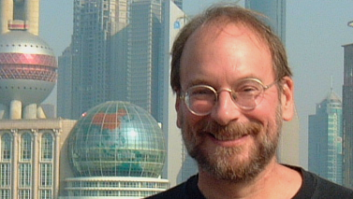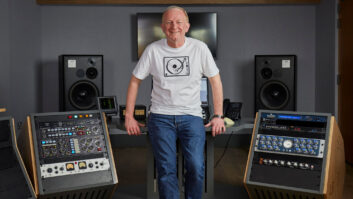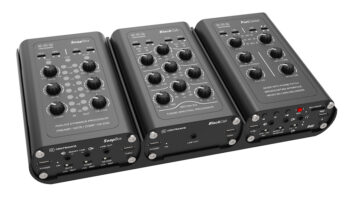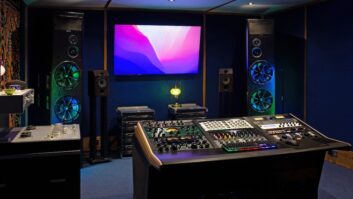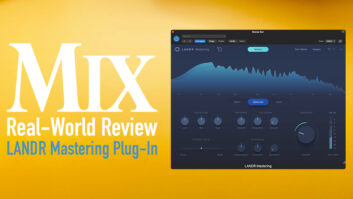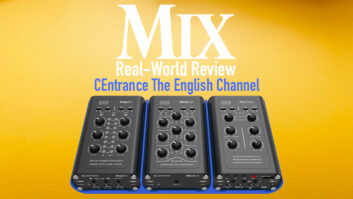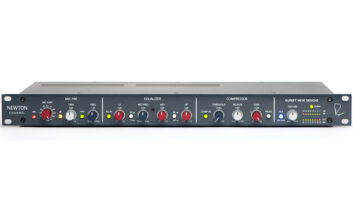Toronto’s Lacquer Channel Mastering is among the longest-standing mastering studios in Canada. And over its 22-year history, there has been one real constant for this facility. Chief engineer George Graves has been there for 20 years, doing the bulk of the mastering work for a diverse clientele, including The Tragically Hip, Holly Cole, Rush, Loreena McKennitt, Public Enemy and LL Cool J. “George is really the centerpoint of Lacquer Channel,” says the studio’s communications manager, Ron Piovesan. “It’s because of him that we have the reputation that we have. He started in the States, and now he’s known all across Canada, as well as in the States.”
Graves began his mastering career at Century Records and then RCA in the early ’60s. (“But I was interrupted by my military service, where I worked as a cook preparing and serving mashed potatoes and pastries to over 200 soldiers!” he says.) In 1971, he began working for Doug Sax at The Mastering Lab in L.A. After three years, he moved to Canada to work at the now-defunct JAMF (Just Another Mastering Facility), and he moved over to Lacquer Channel in 1978. “When I moved to the fledgling Lacquer Channel, it was about three years old and was just cutting lacquers for vinyl in a small room at Phase One Recording Studios in Toronto,” Graves says. “Since that time, Lacquer Channel Mastering has grown into its own facilities with two fully equipped mastering studios, each capable of editing and mastering music for vinyl, CDs and Enhanced CDs.”
The two studios were designed by Group 1 Acoustics of Toronto and are equipped with Sonic Solutions systems, State of the Art CF 750 monitors and custom Neve mastering consoles. “The Neves have been with us since ’75, when we were at our previous location,” Piovesan says. “With the technical assistance of Kirk Eliot, George had the boards rewired and rebuilt to get the type of sound he wants out of them. So they’re very much Lacquer Channel boards. And clients love them. We get offers for our Neves all the time.”
“Like many high-end mastering facilities,” Graves says, “I like to think we have a good balance between old-style and new-style mastering. All our mastering is done in the analog domain, but we do go digital for editing and for adding compression. I take the music off the 11/42-inch or 11/44-inch tape-or DAT, depending on the client-and go through my Pultec EQP-1A EQs, Sontec Parametric Disk Mastering EQs and Dolby 740 Spectral Processor. These are built into our custom Neve mastering consoles. I switch domains using Apogee 1000 DA/AD converters and add digital effects using a Lexicon 300L.”
Because Graves is really the heart and soul of the place, his approach to mastering work essentially defines the facility. “I’m very candid,” he says. “I tell people what I can and cannot do. It’s strange, because some people have an exaggerated sense of what can be done at the mastering stage, so they come in and expect miracles. Then there are artists who have no concept of what can be done while mastering, so they constantly think I’m performing miracles. I want to make the artist as familiar as possible with what I do, so I try to take the mystery out of mastering.”
One of Graves’ pet projects is attempting to demystify mastering for younger bands making their first recordings. Lacquer Channel Mastering’s Project Evaluation Program allows young artists to bring their source tapes into the studio, sit down with Graves, ask questions and hear a few examples of what a mastered version of their recordings would sound like-all for free. Of course, this is partly a marketing plan, because the hope is that the artists will decide to hire the studio, but it also gives new artists a great opportunity to learn about the process from one of the most experienced engineers in the business.
“We’re also fairly flexible as far as rates,” Piovesan says. “We take into consideration what a band can afford and what they need done. This is because George is a very strong supporter of local music. He really enjoys both Toronto music and Canadian music in general. He likes to see a local act that he’s worked on do well across Canada, and he really gets something out of seeing his act make headlines.”
To further boost the Toronto music scene, Lacquer Channel Mastering has produced a compilation CD of local bands titled Audio Channels Vol. 1. The CD is distributed to radio stations and offered for sale. Other services at Lacquer Channel Mastering include rental of some of the studio’s Studer, Ampex and Otari analog tape machines, and audio restoration. Visit the studio at www.lacquerchannel.com.

